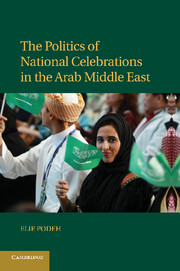Introduction
Published online by Cambridge University Press: 05 July 2011
Summary
The renowned Russian writer Lyof Tolstoy unabashedly bemoaned what he deemed adverse expressions of patriotism and national celebrations when he wrote the following, in a turn-of-the-century treatise:
From infancy, by every possible means, – class-books, church-services, sermons, speeches, books, papers, songs, poetry, monuments, – the people is [sic] stupefied in one direction; and then either by force or by bribe, several thousands of the people are assembled, and when these, joined by the idlers always present at every slight, to the sound of cannon and music, and inflamed by the glitter and brilliance about them, will commence to shout out what others are shouting in front of them, we are told that this is the expression of the sentiment of the entire nation.
Rulers and elites clearly do not share Tolstoy's cynical view of national celebrations; rather, they tend to consider them a useful device in the quest for power, grandeur and legitimacy. Indeed, ever since the Greek and Roman Empires, public pageants have been a handmaid of politics. This was particularly true of the rise of the nation-state in Europe and elsewhere from the eighteenth century. These pageants gradually moved from the center of the polity to the periphery, inducing the masses to play an important role in the celebrations as participants and spectators.
By the end of the twentieth century, however, with the consolidation of the nation-state, the impact of globalization upon Western societies and the growing erosion of physical boundaries, the importance of state celebrations, at least in Europe, appeared to have faded.
- Type
- Chapter
- Information
- Publisher: Cambridge University PressPrint publication year: 2011



